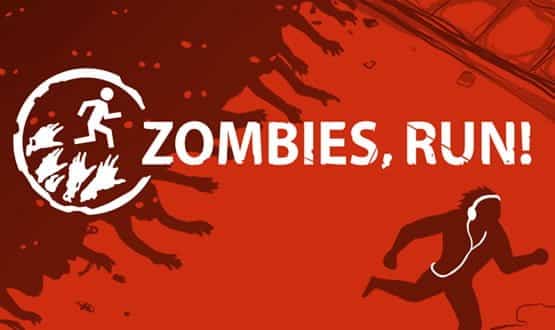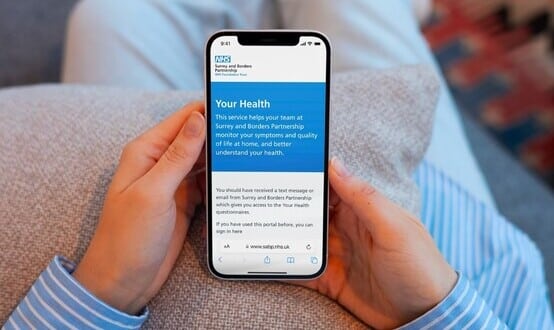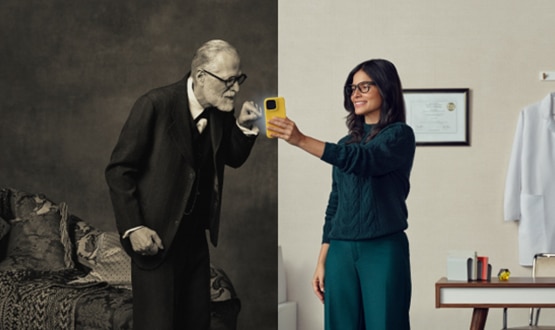Tom’s digital health disruptors: Press start

Over the past few years, there have been any number of articles that have excitedly proclaimed that the video game industry is bigger than Hollywood, making tens of billions of dollars around the world.
Long gone are the days when the typical gamer was a teenage boy alone in his room; who doesn’t now have Angry Birds or Candy Crush on their phone, if not an Microsoft Xbox in the front room controlling their media life?
With such omnipresence, gaming is also starting to seep into the world of healthcare, with some developers using them to encourage people live healthier lifestyles and avoid diseases as part of the ‘wellness agenda’.
Keeping fit
Most fitness apps and wearables have some element of gaming in their ability to keep track of distances and times. At the most basic level, wanting to beat yesterday’s number of steps or to break your personal best for a jog around the park is just another way to reach a ‘high score.’
One piece of software that has taken it to an extreme is ‘Zombies, Run!’ a popular smartphone app that puts people at the heart of a zombie epidemic in order to get them to improve their fitness.
Listening to a mission on their headphones, while jogging outside, users play the role of a runner heading towards an outpost of survivors. If they begin to hear they are being chased by zombies they have to speed up. There are also opportunities to pick up supplies and rescue survivors on the way.
One million players have taken part so far in at least one of 200 missions on offer. Numerous fan reviews have said that being chased by the undead has definitely improved their motivation to keep running; although a team at the University of Texas is now looking to provide clinical evidence for this in a study funded by the American Heart Association.
Adrian Hon, creator of Zombies! Run and chief executive of Six to Start, says the power of using gaming in healthcare is its ability to provide “motivation and engagement in a uniquely powerful way.”
For him, a good health game should have the same qualities as any game – it should be “intrinsically fun” so that people love to play “without any kind of instructions or prodding.”
The perceived success of Zombies, Run! has allowed Six To Start to work on a number of health and fitness games, including one based on a superhero workout, a dungeon-themed fitness adventure, and 'The Walk' – a ‘techno thriller’ funded by the Department of Health and the NHS.
Self-management
The next level, when it comes to encouraging a healthy lifestyle, is to use gaming ideas as a tool to help people manage specific conditions.
Several organisations have already made some headway in this area, including pharmaceutical company Sanofi, which has funded the development of several mobile games to support young people with type 1 diabetes, a condition that demands a great deal of self-management to avoid complication and control symptoms.
Sanofi's first game for the UK was 'Monster Manor', developed by Ayogo, and launched in November 2013 in partnership with Diabetes UK. It is a free game for mobile devices to encourage children to record their blood sugar levels – usually a pretty thankless task that involves painful fingerprick testing.
The premise is that children who do the test and then type in the results are given beans that they can use to develop the monster character that they control in the game.
“We wanted to help make the testing a bit more fun for the kids,” says Rebecca Reeve, head of professional relations for Sanofi's UK diabetes division, noting that 85% of children and young people over the age of 12 in the UK are not hitting their recommended blood glucose level.
Gaming seems an obvious way to achieve this, says Simon O'Neill, Diabetes UK's director of health intelligence and professional liaison.
“As someone with a background in paediatric nursing what you want to do is engage with children and get them engaged in their treatment. They are all playing with apps on their phone [so we thought let’s see if we] can take some of that technology, and use it to get health messages across or encourage behaviour change. That is what we were trying to do with Monster Manor.”
From October 2013 to June 2014 there were more than 1,000 downloads of the game, and in an evaluation of its impact Sanofi found that a third of children were still engaged a month after download. Some 26% of children said playing the game had an effect on the frequency of blood glucose testing.
Mental health
Mental health is another area where developers are starting to see the potential for gaming, perhaps influenced by the large population of younger people affected by some conditions, and the long-term nature of many.
Appadoodle is working on several apps in this area that have elements of gamification, including 'Silver Linings'. This has been developed in partnership with Birmingham and Solihull Mental Health NHS Foundation Trust to support patients who are using the trust's early intervention service for psychosis.
The app features a mood diary in which users are expected to keep track of how they feel, so they can identify possible triggers for problems. It stores information in a dashboard area that can be accessed by the user and their clinician with user permission.
Jamie Prangnell, managing director at Appadoodle, explains that when a user fills in the diary or does something proactive to address their mood – such as go for a run – they are rewarded with badges in order to provide motivation once the initial novelty wears off.
“We are trying to get users taking responsibility for their own treatment through engaging them and encouraging them to come back to the app.”
Adherence
The idea of rewarding user input is also the main driver for HealthPrize Technologies, a US-based tech company that has worked with several pharmaceutical firms on online platforms to encourage adherence to medicines.
The key issue to address is that medicines for chronic diseases have an impact over the long term but few have no real short-term benefits, says Dr Katrina Firlick, the company’s co-founder and chief medical officer.
To provide this immediate incentive, HealthPrize has developed systems whereby patients can win points for saying they have taken their medication or for filling up their medication at pharmacy. Patients can also take part in weekly quiz on their condition where they can win more points.
Like most loyalty programmes, users can then redeem these points for rewards, including gift cards, merchandise and charitable donations.
“The whole premise is that if we can make the value proposition more compelling to patients and even add a little fun factor, that motivation can be enhanced,” says Firlick.
It’s an approach that is showing signs of working, with a study posted early this year demonstrating some evidence that HealthPrize’s system was able to boost adherence rates, including among one group of patients with diabetes where the average interval between prescription refills for patients fell by 39%.
Who’s allowed to play?
With companies such as HealthPrize producing data, there is growing evidence that gaming can have a real impact on healthcare. However, the area is still in its infancy and some amount of catching up is needed when it comes to the way games have infiltrated the rest of the market.
Six to Start may now be working with the DH on a new game, but Hon still sees challenges to uptake in the way the NHS works.
“The UK health system is a massive thing, and some parts are more supportive than others. I wouldn't say it does any worse or better than other country's health systems – which is to say there's certainly room for improvement.”
Working in the heavily regulated environment of the pharmaceutical industry, Sanofi has particular challenges in promoting its digital offerings directly to patients, and Reeve is watching with interest NHS England's plans to introduce an assessment model for healthcare apps.
The hope is that this model – which is due to launch in some form in April next year – can drive trust in these tools among healthcare professionals so that that they can see them as an additional option to recommend to patients. “At the moment that access and entry point is probably the most difficult barrier,” says Reeve.
That assessment model is still very much a work in progress, and something that will cover all healthcare apps not just gaming ones, but it could well be the next important step in driving the uptake of gaming as a valid healthcare tool.

|
|
Tom Meek
|
 |





